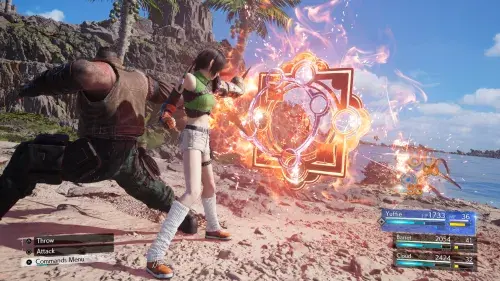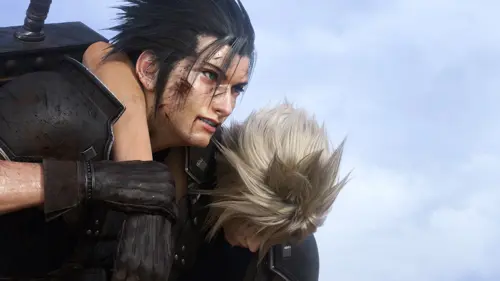We got more insight into the incredible experience that awaits us in Final Fantasy VII Rebirth in an email interview between game director Naoki Hamaguchi and Timothy Monbleau, the Guide Editor for Destructoid.
Having gotten the opportunity to play the Rebirth demo, the interviewer at Destructoid focused a lot of his attention on the transition from Final Fantasy VII Remake to Rebirth; especially regarding how the development team approached decisions meant to evolve the experience in such a high-profile sequel. Specifically, he asked about the decision to not let character or materia levels carry over from Remake.
“Rather than forcing the game to be carried over and creating discrepancies in the gameplay experience for each player,” Hamaguchi responds in the email, “we decided that it would be better for all users to be able to enjoy the game in the same state, which would result in a new and fresh experience for everyone.”
Hamaguchi also stresses that the decision to go this route wasn’t an easy one but, ultimately, it was the right choice based on their commitment to constantly improve over the course of what will be a trilogy.
In talking about growth and evolution in gaming, he also asked Hamaguchi about Rebirth building on the action-oriented gameplay from Remake. Referencing Final Fantasy XV and this year’s Final Fantasy XVI as other examples, Final Fantasy’s shift away from turn-based combat to more fluid, action-based combat hasn’t exactly been subtle. So, what exactly is the deal with that?
Hamaguchi explains this transformation.

“As game graphics have improved and can render much better immersion into the games, the user’s control functionality must also be that much more responsive in real time, otherwise that sense of immersion will be disrupted.
Although turn-based strategy certainly still has its appeal, I believe that this trend of high-end games pursuing more realistic, real-time control functionality will not change in the future.”
While we recently got more information about some of Rebirth’s new combat features, there are still big questions about the narrative twists and turns up the Rebirth team’s sleeves. Especially after its predecessor smashed all expectations and essentially redefined what a “remake” is.
Prior to the launch of Remake, players wanted to know how much Square Enix would deviate from the original Final Fantasy VII story—if at all. Now we know that while elements of the original were certainly present, deviations were also abundant. And for all those times players were left wondering why a story element was changed in Remake, Hamaguchi admits that he’s not only aware of that strong fan reaction, but it was pretty much orchestrated.
“Overall, we wanted the player to follow the familiarity of how this game progresses in the same way as the original, while still picking up on subtle differences in certain details, which are meant to keep the player on the edge of their seats, speculating what those deviations might mean for the story’s climax.”
He goes on to say that the Whispers in Remake were essential narrative tools for that reason. He adds that a certain dark-haired, squat-loving party member would be playing a similarly important role in Rebirth. “…This time around, Zack also joins in. He will certainly entertain and wrangle the player in the best way possible.”

Hamaguchi shares more about side quest variation and more in the full interview that can be read on Destructoid. Check it out as a treat for lasting until the 100-day mark until the February 29, 2024, release of Final Fantasy VII Rebirth on the PS5.
